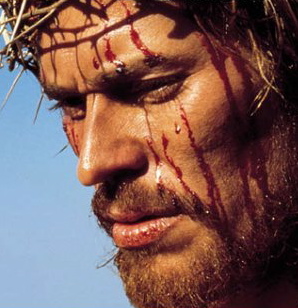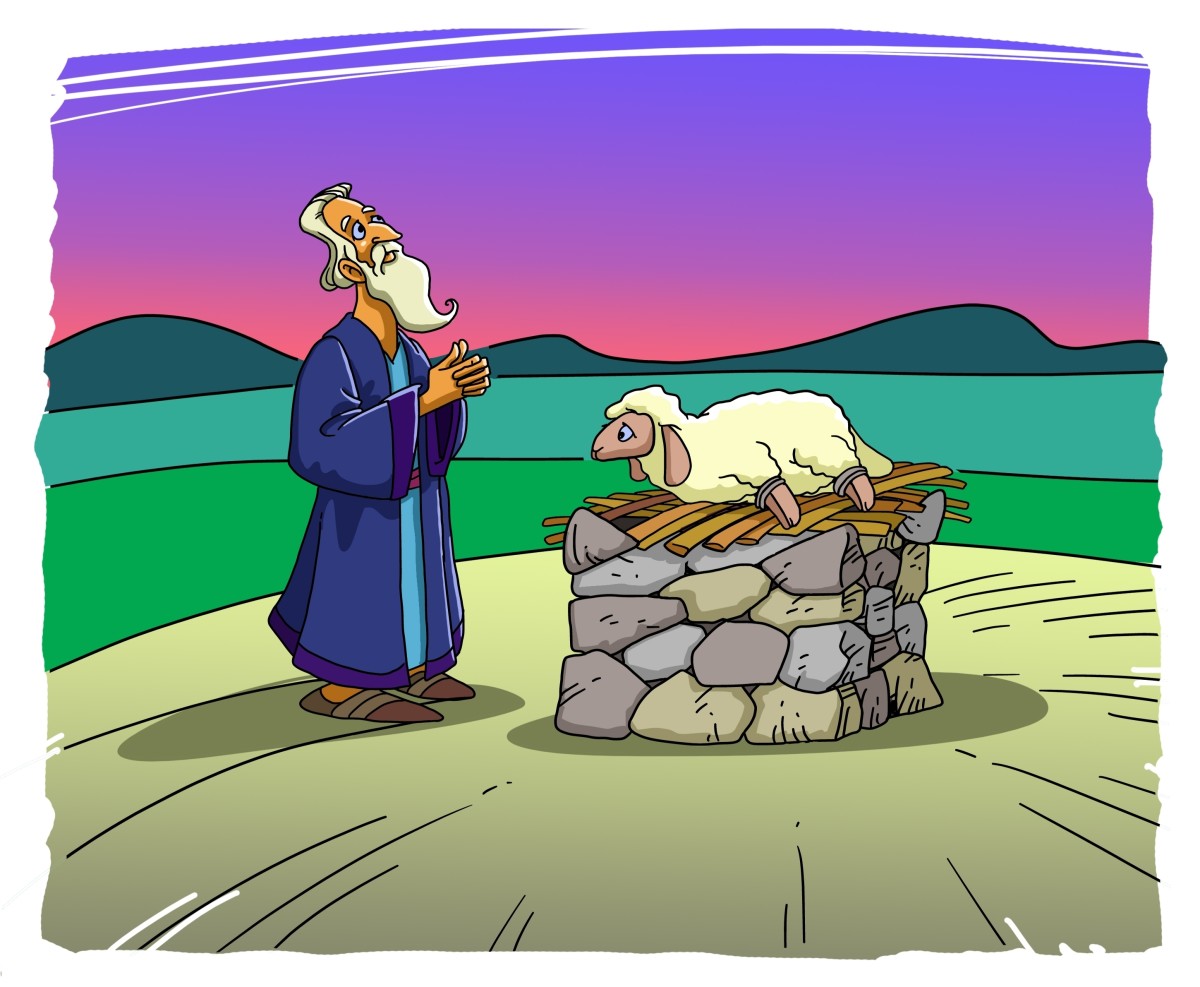The Last Temptation of Christ (1988)

The best movie involving Christ is a fictional one -- "The Last Temptation of Christ," based on the controversial novel by Nikos Kazantzakis's .
Of all the films I've watched (except perhaps Mel Gibson "The Passion"), "The Last Temptation is the only film that attempts to portray Christ as a real man. Christ had powers of a god, but all the weaknesses of a human being -- perhaps more so because of this terrible schism between just wanting to live a normal life as a man and the supernatural force to fulfill a destiny he barely understood.
"The Last Temptation of Christ" -- both the novel and the movie are prefaced as being the efforts of FICTION and not a reinterpretation of scripture, but this didn't dissuade non-intellectual, pin-headed Christians from condemning these works of art.
As for the belligerent, pin-heads who actually demonstrated in front of movie theaters, I'd just have to say -- what a frightened lump of human flotsam.
Somehow, years later, this same group of nincompoops could watch Christ being turned into hamburger meat in "The Passion" but couldn't accept even the FICTIONAL concept that Christ's life could have turned out much differently had he made one mistake. They couldn't accept "their" god being used to illustrate a valid human moral dilemma.
Director, Martin Scorsese's does an excellent job of portraying the Nikos Kazantzakis's character -- a man plagued with fear, uncertainty, unhappiness, hesitation, confusion, and regret. If you or I had been picked out by God to be the savior of mankind, would we levitate above these basic, human emotions -- I don't think so.
We first see Jesus as a carpenter, building crosses for the Romans. He does this knowingly -- so that God will hate him and leave him alone. That would be my response, my wish -- for God to just leave me alone and go find someone else to carry on the burdens of the messiah.
Judas visits and warns him that he must give up this occupation, as he is attracting the attention of the Jewish zealots (and not in a good way). No one can understand his suffering. Building crosses seems like the best way to be rid of God, but his seizures continue -- Christ says something to the effect of "The feeling begins very soft, very gentle, then the claws dig into my brain."
Jesus then goes to seek a master to help him determine whether he is being plagued by God or Satan. He is welcomed into a small commune in the desert. Jesus, exhausted from his travel, awakens to find black snakes funneling out of a hole in the earth. Petrified, all he can say is "Leave me!"

The next morning he spends time with one of the other acolytes. Jesus mentions the episode with the snakes, and the acolyte tries to assure him that this was a good vision -- that whatever evil had plagued him has exited. When Jesus mentions the leader of the small band of devote worshippers, the acolyte tells him that the master had died the night before last. Jesus finds this hard to believe since the master had been the one to welcome him into the commune, but it is nevertheless true. The accolyte also tries to convince Jesus that it is a blessing to know what God wants of him, that God speaks to him directly. The acolyte admits that sometimes he thinks he hears God, but is never really sure. Christ tells the acolyte, "You think it's a blessing to know what God wants? He wants to push me over," with a hand gesture of being thrown over a cliff. He adds, "You want to know what is inside of me? Fear."
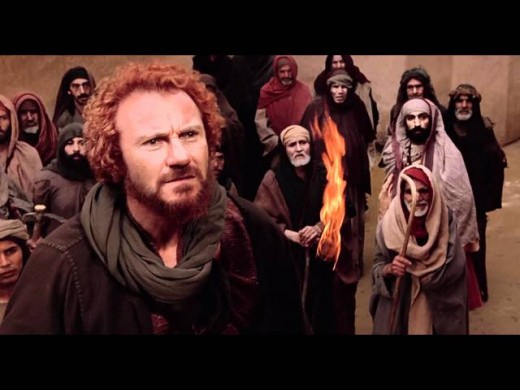
Later, upon another meeting with Judas who has come with orders from the zealots to slit his throat, Jesus does nothing to deter him. He tells Judas that he was purified and is no longer afraid to die.
Judas asks, "What kind of man are you?" Jesus admits that even he is only beginning to understand God because he reveals his intentions in an incremental way. Jesus tells Judas that they want the same thing.
Judas takes this as meaning, that Jesus too wants to drive the Romans from the land, but Jesus clarifies that this cannot be done with the sword because doing so would only exasperate the problem. Jesus hints that he has another way to rid the land of the Romans, a different way.
He agrees with Judas that if he should stray an inch "from the path" then Judas can cut his throat. Judas tells Jesus that John the Baptist should be able to discern whether Jesus is insane or ... something more.
When the Baptist meets Jesus' eyes, he asks, "Who are you?" Jesus replies, "You tell me," then requests to be baptized. The Baptist say, "No, no, if you are who I think than you should be the one to baptise me." Jesus insists upon being baptized by John, and he complies.
In he evening they have a discussion. John conveys his vision of how to be rid of the Romans. He says if a tree is rotten it must be cut down. Christ differs with him, saying that violence will only bring more violence. The Baptist tells Jesus that he must consult with God, and that the god of Israel is the god of the desert -- so he must prepare himself to make the trip. John warns Jesus, "Be careful. God isn't alone out there."
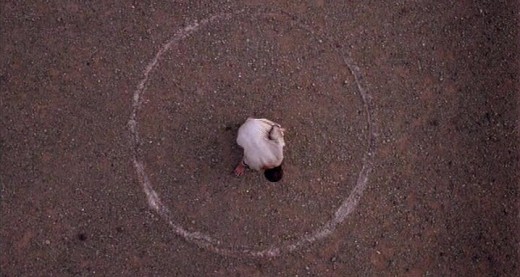
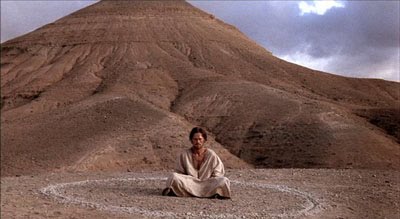
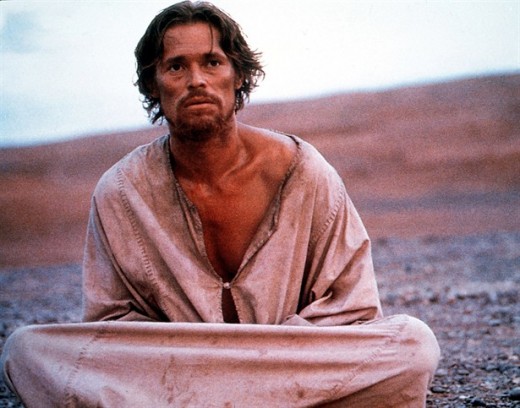
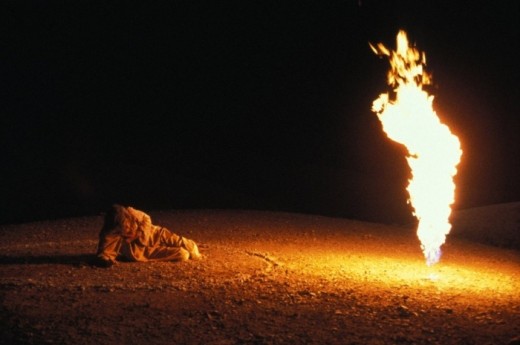
Jesus encounters three visitations. The first is a black snake with Mary Magdeline's voice. The snake pleads with Jesus to stop torturing himself and join her in her bed. The second visitor is a lion who speaks with the voice of Judas. The lion tells Jesus he could be the most powerful being on the planet, which is what he always wanted. Jesus tells the visage that he never asked for a heaven on earth. The third visitor is Satan himself who offers him the chance to rule by his side. Jesus refuses a third time. Satan vanishes but not before saying "We shall meet again."
Unlike scripture Judas is portrayed as the strongest and most loyal of Christ's followers, and for this reason he chooses him "for the harder part" of perpetrating a secret pact between them wherein Judas will disclose his location to the Roman soldiers. Despite his inner-heartbreak, he agrees to follow Jesus' instructions.
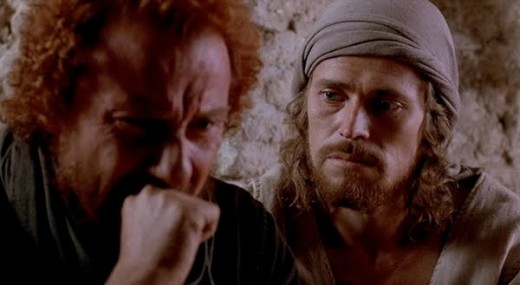
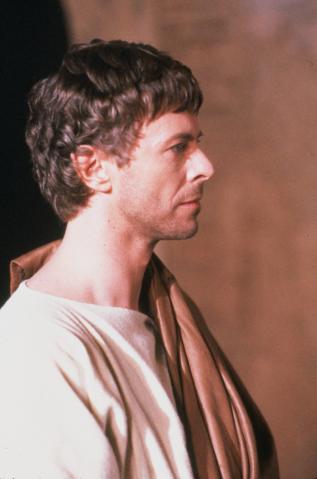
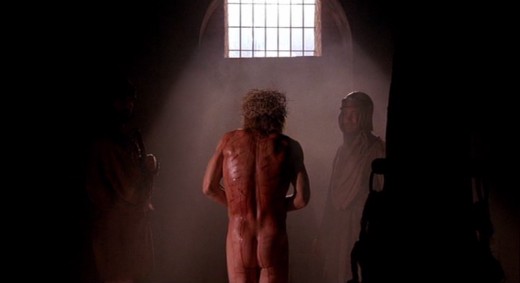
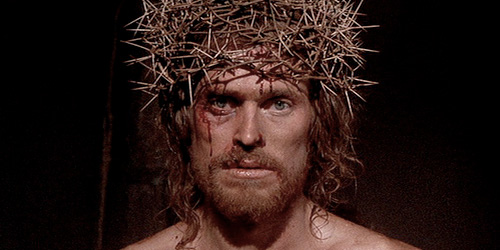
The startling difference is that while Christ goes through his agony on the cross, suddenly everything becomes quite and he notices a beautiful, young girl who tells him, that God is satisfied, and he no longer needs to suffer. Christ asks, "You mean, I don't have to die on the cross," and she replies, "No. That God in his mercy does not want his only son to die in agony." Christ can only accept the child as an angel from heaven, and his sense of relief has no bounds. She removes the nails from his hands and feet and kisses the wounds. She leads him away from the scene of the crucifiction and tells Jesus not to not look back but to look forward.
Christ sees what looks like a wedding party down a hill. And the girl tells him that it is his marriage ceremony with Mary Magdeline.
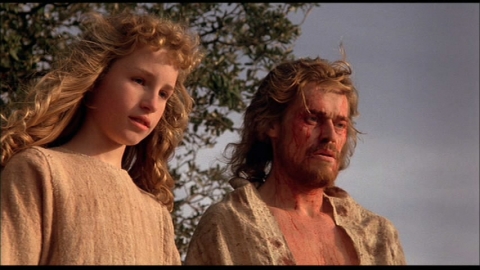
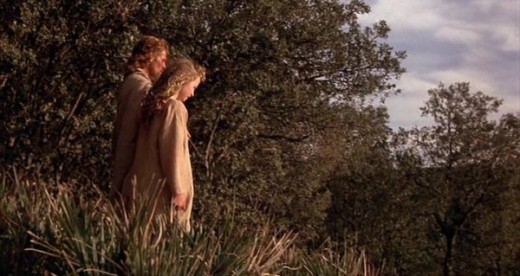
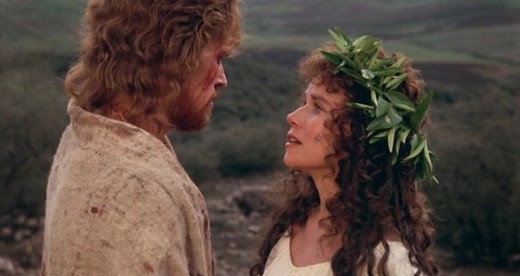

We witness Christ settling into the life of a normal man. He is happy with Magdeline. For reasons unknown, God takes her away, and Jesus is infuriated with God. The girl tells Jesus not to be mad at God, that she was there when it happened, and Magdeline died in a state of great happiness. The girl coaxes him to take another wife, and he does. The girl tells him, "There is only one woman in the world."
With his second wife Christ is gifted with a number of children. We gradually watch him age, but he is content with his life.
After some years he comes upon a man who is preaching about Christ who died on the cross to save us from our sin. The man is Paul (once a zealot who has converted to spreading the word of Christ). Jesus tells him that he is a liar. He tells Paul that he had been on the cross but God spared him and he now lives a happy life as a regular man.
Paul tells Jesus he doesn't really care who he is because "his" Jesus is much more powerful. He says that people are suffering and need a savior and this is what he provides them with through his sermons. Jesus says he will tell everyone that Paul is a liar. Unaffected, Paul tells Jesus to go ahead, that it won't make any difference -- that his own story of the Jesus who died on the cross is far more compelling -- so he would be the one to be thought a liar.
Gradually, Jesus ages and reaches a point of weakness wherein he is on his deathbed, surrounded by his loved ones.
His old apostles come to give their blessing -- all but Judas who is extremely angry. He asks Jesus, "What are you doing here, living this life as a man? Your duty was to die on the cross, as you begged me to let you do. What are you doing with women and children?
Jesus explains that God spared him from dying on the cross, that he sent an angel to save him from this bloody death. Judas asks him, "What angel?" He points to the spot where the girl had been sitting and in her place we see the same blinding flame that Jesus encountered during his temptations in the desert.
Horrified by his mistake, he literally crawls out of his death bed and across the ground toward Jeruselum, which is on fire. In this position he begs god to have pity on an unworthy son and proclaims that he "wants to die on the cross."
A moment later that is where he is -- exactly where he had left it, with the same shameless people deriding him from the ground. But, this time, with almost a smile on his face, Christ says, "It is accomplished."
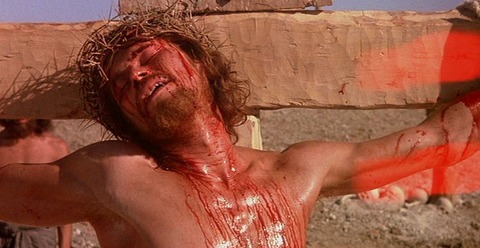
This is no work of sacrilege but a deep, philosophical examination of man's dichotomy, his weakness between the spirit and the flesh.
Like it or not this is a struggle we all undergo -- no, not being stricken with the role of Christ, but being mere mortals who nevertheless have a spirit that transcends (at times) the temptations of the flesh.
The book and the film are both masterpieces because they dare to examine the unexamined life. For those who were offended by either, I would ask, were you offended because the novel/film caused you to think in ways that sat outside your Sunday morning sermons? Was the subject matter just too damn heavy for you to even contemplate?
If so, I'd suggest you are not a deserving follower of Christ because you believe without even testing/analyzing what you believe. You are merely choking down the dogma handed to you on a platter by so-called "holy men" and never approaching the New Testament with an open and questioning frame of mind. I do not think this is what Christ meant when referring to his flock of sheep. He never asked for legions of zombies. He wanted whole and complete men who had searched their souls and followed his path after an examination of the wisdom of his teaching.
